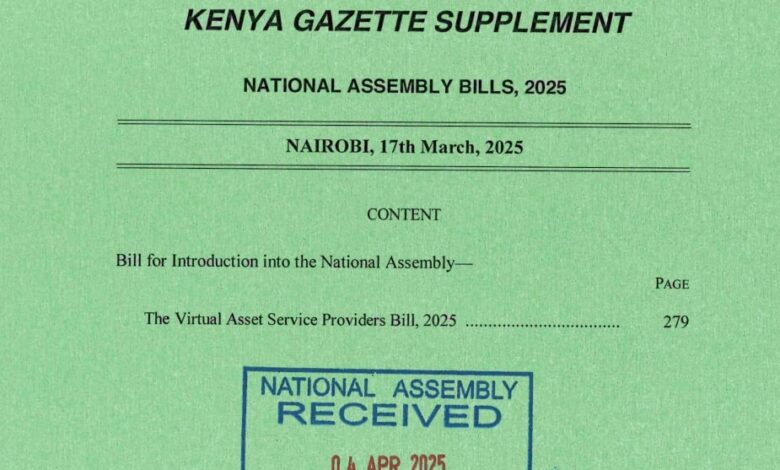Kenya Introduces Virtual Assets Bill to Regulate Crypto and the Digital Finance Sector

Kimani Ichungwa, the majority leader in the Kenyan parliament, has introduced the new Virtual Assets Service Providers Bill 2025, which aims to identify legitimate cryptocurrency owners in order to apprehend tax evaders, cheaters, and hackers.
Kenya is working to remove itself from the Financial Action Taskforce’s grey list, and this bill is part of that endeavor. Among the promises made was the adoption of a legislative framework for the licensing and oversight of service providers of virtual assets.
The bill was sent to introduce explicit prohibition of anonymity-enhancing services. Thus, the bill has been done to align with the best emerging global best practice around taming cyber security and money laundering in the virtual assets space.
The Bill recommends that there shall be a full visibility of transaction details and the participating parties with a view to achieving transparency and traceability. In regards to this, it also proposes severe penalties not exceeding ksh 3 million in the case of an individual and not exceeding ksh 10 million in the case of a company should be the be violation with regard to license display, modification of activity and governance.
Read Also: Exclusive: How Cryptocurrency is Reshaping the Gaming Landscape in Africa with Frank Deya
The 2024 Bill provided for a Kes 150,000 & an additional Kes 15,000 penalty for each day or part of each day for which the contravention continues in the case where a licensee failed to provide the relevant regulatory authority with online or automated real time read-only access to both its client’s and its own virtual asset transaction records. It seems to have been dropped in the 2025 Bill
Key changes in the Bill unlike in 2024, it has rejigged to attain clarity of functions, assigning the oversight of the wallets to the Central Bank while transferring the oversight of the investments/exchange aspects to Capital Markets Authority. This is a clean up of roles given that the 2024 Bill had captured transfer & exchange of virtual assets as something regulated by both Central Bank of Kenya & Capital Markets Authority
Also, it adds a provision for Token issuance Platforms for issuance and secondary trading once real assets are tokenized. This shows there is an attempt to democratize access to the tokens generated, especially with the retail market.
Finally, the 2025 Bill introduces Stable coins and Initial coin offerings. Stable coins issuances will be regulated by the Central Bank of Kenya and Initial coin offerings will be regulated by the Capital Markets Authority.




















